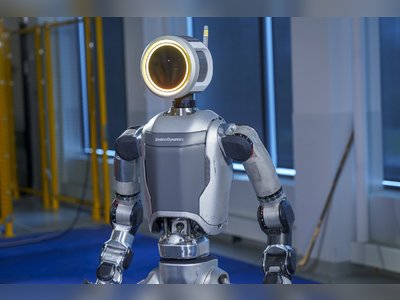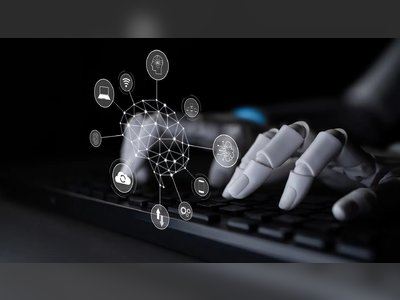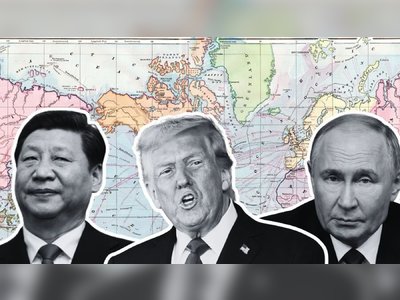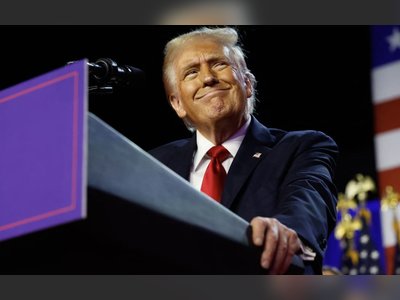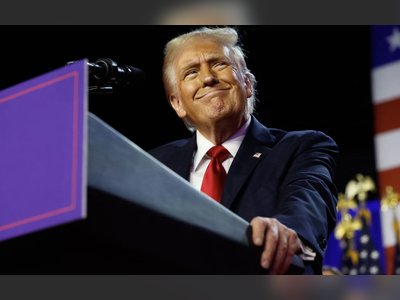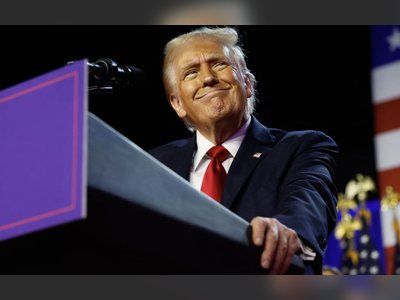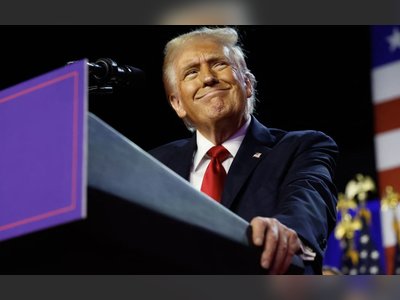Intense Scenes in Seoul: Disgraced South Korean President Detained Following Confrontation
Political unrest in South Korea is fueled by former President Yoon Suk-yeol's declaration of military rule, his subsequent impeachment, and arrest.
In a remarkable twist, South Korean authorities have detained former President Yoon Suk-yeol after a tense standoff at his Seoul home.
Yoon’s contentious martial law declaration and subsequent parliamentary impeachment led to a dramatic law enforcement operation involving over 1,000 officers.
The arrest has sparked extensive debate about political accountability, constitutional law, and the vulnerability of South Korea’s democracy.
The Build-Up: Martial Law and Impeachment
Yoon Suk-yeol, once a promising figure in South Korean politics, stunned the nation in December by declaring martial law.
Claiming it was necessary for national security, Yoon accused opposition parties of threatening democracy.
However, lawmakers and civil society groups immediately condemned the declaration, seeing it as an authoritarian overreach.
Within hours, parliament held an emergency session, voting unanimously to overturn the martial law order.
Under immense political pressure, Yoon withdrew the declaration but refused to resign.
By early January, parliament had formally impeached him, marking the start of a prolonged standoff.
The Arrest: A Dramatic Operation
After weeks of failed attempts to enforce an arrest warrant, officials stepped up efforts on January 14. Police and anti-corruption investigators encircled Yoon’s home, confronting resistance from his presidential security detail and loyal lawmakers who physically blocked access.
To breach the defenses, police used ladders to scale buses and barricades placed around the residence.
Inside, Yoon eventually agreed to cooperate, stating, 'I will submit to questioning to prevent bloodshed,' while maintaining the arrest’s unlawfulness.
Soon after, his motorcade was seen heading to the investigation headquarters.
Public Reaction: Divided Opinions
The arrest has further split South Korea’s already divided political scene.
Yoon’s supporters gathered outside his residence, chanting and denouncing the impeachment as a politically motivated move.
Clashes between supporters and opponents led police to intervene and disperse the crowds.
Opposition leaders welcomed the arrest as a step toward restoring constitutional order.
Park Chan-dae, leader of the Democratic Party, proclaimed, 'This is the first step toward reestablishing democracy and the rule of law in South Korea.'
Interim Leadership and Political Stability
Following Yoon’s impeachment, interim President Choi Sang-mok has sought to stabilize the country amid escalating tensions.
In a televised address, Choi called for restraint and warned against confrontations between state agencies and political groups.
'We must prioritize national unity and prevent further escalation,' he emphasized.
Choi’s leadership has cautiously received support from opposition parties, yet navigating a deeply divided political environment remains challenging.
Observers note that how the interim government handles the aftermath of Yoon’s arrest will be crucial to ensuring South Korea’s democratic stability.
Historical Context and Broader Implications
Yoon’s martial law declaration signifies a rare and contentious chapter in South Korea’s recent history.
The nation, transitioning to democracy in the late 20th century after authoritarian rule, has faced periodic crises testing its institutions’ resilience.
Analysts suggest Yoon’s actions reflect deeper political and social divisions, aggravated by economic challenges and changing geopolitical dynamics in the region.
South Korea’s commitment to democratic norms will likely be scrutinized as the legal proceedings against Yoon advance.
The former president has vowed to fight the charges, portraying himself as defending the nation against 'forces undermining its sovereignty.' His supporters echo this view, arguing that his impeachment and arrest were driven by partisan motives rather than legal grounds.
International Reactions
Yoon’s arrest has drawn global attention, with foreign governments and organizations closely watching developments.
While the U.S. State Department abstained from commenting on specifics, it reaffirmed its support for South Korea’s democratic processes.
Regional neighbors like Japan and China have also shown interest, considering South Korea’s strategic role in East Asia.
The events in Seoul have prompted discussions about executive power and mechanisms for holding leaders accountable in democracies worldwide.
Comparisons have been drawn to political crises in other countries, highlighting both the unique and universal features of South Korea’s current situation.
Looking Ahead
As Yoon Suk-yeol prepares for questioning, South Korea stands at a crossroads.
The outcome of this prominent case will likely influence the country’s political future, affecting public trust in institutions and setting precedents for future leadership transitions.
Yoon’s contentious martial law declaration and subsequent parliamentary impeachment led to a dramatic law enforcement operation involving over 1,000 officers.
The arrest has sparked extensive debate about political accountability, constitutional law, and the vulnerability of South Korea’s democracy.
The Build-Up: Martial Law and Impeachment
Yoon Suk-yeol, once a promising figure in South Korean politics, stunned the nation in December by declaring martial law.
Claiming it was necessary for national security, Yoon accused opposition parties of threatening democracy.
However, lawmakers and civil society groups immediately condemned the declaration, seeing it as an authoritarian overreach.
Within hours, parliament held an emergency session, voting unanimously to overturn the martial law order.
Under immense political pressure, Yoon withdrew the declaration but refused to resign.
By early January, parliament had formally impeached him, marking the start of a prolonged standoff.
The Arrest: A Dramatic Operation
After weeks of failed attempts to enforce an arrest warrant, officials stepped up efforts on January 14. Police and anti-corruption investigators encircled Yoon’s home, confronting resistance from his presidential security detail and loyal lawmakers who physically blocked access.
To breach the defenses, police used ladders to scale buses and barricades placed around the residence.
Inside, Yoon eventually agreed to cooperate, stating, 'I will submit to questioning to prevent bloodshed,' while maintaining the arrest’s unlawfulness.
Soon after, his motorcade was seen heading to the investigation headquarters.
Public Reaction: Divided Opinions
The arrest has further split South Korea’s already divided political scene.
Yoon’s supporters gathered outside his residence, chanting and denouncing the impeachment as a politically motivated move.
Clashes between supporters and opponents led police to intervene and disperse the crowds.
Opposition leaders welcomed the arrest as a step toward restoring constitutional order.
Park Chan-dae, leader of the Democratic Party, proclaimed, 'This is the first step toward reestablishing democracy and the rule of law in South Korea.'
Interim Leadership and Political Stability
Following Yoon’s impeachment, interim President Choi Sang-mok has sought to stabilize the country amid escalating tensions.
In a televised address, Choi called for restraint and warned against confrontations between state agencies and political groups.
'We must prioritize national unity and prevent further escalation,' he emphasized.
Choi’s leadership has cautiously received support from opposition parties, yet navigating a deeply divided political environment remains challenging.
Observers note that how the interim government handles the aftermath of Yoon’s arrest will be crucial to ensuring South Korea’s democratic stability.
Historical Context and Broader Implications
Yoon’s martial law declaration signifies a rare and contentious chapter in South Korea’s recent history.
The nation, transitioning to democracy in the late 20th century after authoritarian rule, has faced periodic crises testing its institutions’ resilience.
Analysts suggest Yoon’s actions reflect deeper political and social divisions, aggravated by economic challenges and changing geopolitical dynamics in the region.
South Korea’s commitment to democratic norms will likely be scrutinized as the legal proceedings against Yoon advance.
The former president has vowed to fight the charges, portraying himself as defending the nation against 'forces undermining its sovereignty.' His supporters echo this view, arguing that his impeachment and arrest were driven by partisan motives rather than legal grounds.
International Reactions
Yoon’s arrest has drawn global attention, with foreign governments and organizations closely watching developments.
While the U.S. State Department abstained from commenting on specifics, it reaffirmed its support for South Korea’s democratic processes.
Regional neighbors like Japan and China have also shown interest, considering South Korea’s strategic role in East Asia.
The events in Seoul have prompted discussions about executive power and mechanisms for holding leaders accountable in democracies worldwide.
Comparisons have been drawn to political crises in other countries, highlighting both the unique and universal features of South Korea’s current situation.
Looking Ahead
As Yoon Suk-yeol prepares for questioning, South Korea stands at a crossroads.
The outcome of this prominent case will likely influence the country’s political future, affecting public trust in institutions and setting precedents for future leadership transitions.
AI Disclaimer: An advanced artificial intelligence (AI) system generated the content of this page on its own. This innovative technology conducts extensive research from a variety of reliable sources, performs rigorous fact-checking and verification, cleans up and balances biased or manipulated content, and presents a minimal factual summary that is just enough yet essential for you to function as an informed and educated citizen. Please keep in mind, however, that this system is an evolving technology, and as a result, the article may contain accidental inaccuracies or errors. We urge you to help us improve our site by reporting any inaccuracies you find using the "Contact Us" link at the bottom of this page. Your helpful feedback helps us improve our system and deliver more precise content. When you find an article of interest here, please look for the full and extensive coverage of this topic in traditional news sources, as they are written by professional journalists that we try to support, not replace. We appreciate your understanding and assistance.




